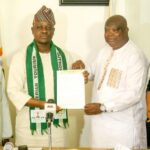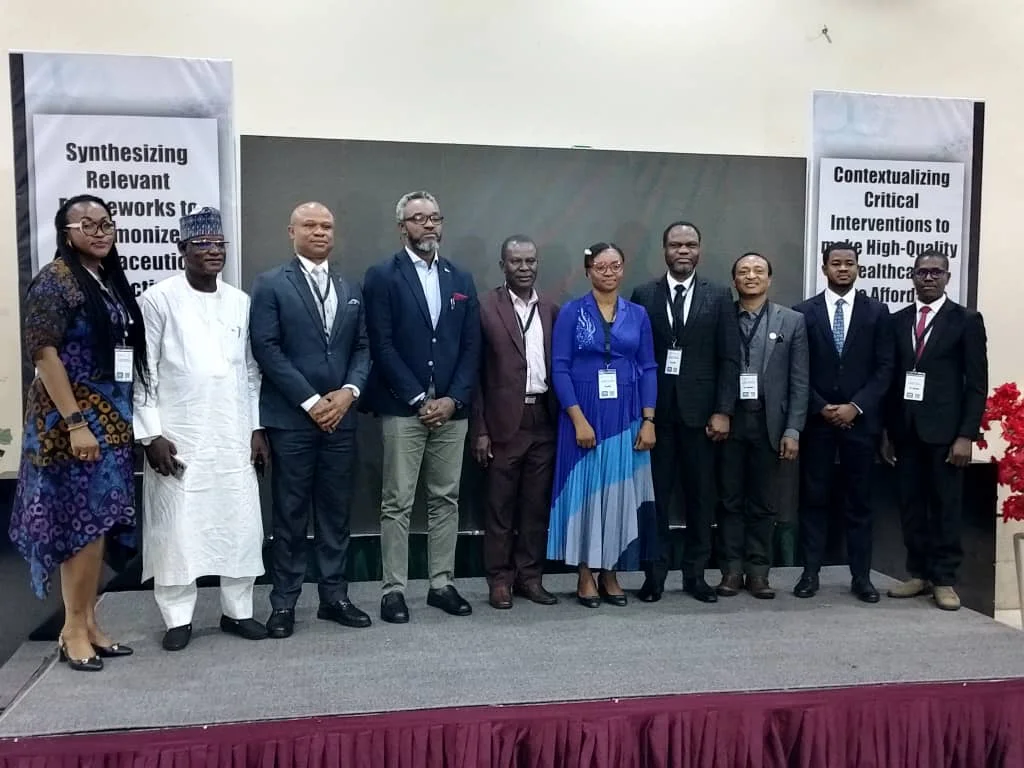By Folasade Akpan
Health sector experts have called for the harmonisation of pharmaceutical activities in Nigeria to eliminate duplication, enhance efficiency, and improve access to quality medicines and health products.
The call was made in Abuja during a high-level stakeholders’ engagement focused on aligning efforts under the Improving Access to Medicines through Policy and Technical Support (IMPACT) project.
Dr Tayo Hamzat, Supply Chain Management Officer at the World Health Organisation (WHO), said the engagement was timely, considering the number of ongoing but uncoordinated interventions in the sector.
“Harmonisation will lead to faster access to health products, lower costs, improved efficiency, and better regulatory oversight.
“It requires collaboration and a focus on strengthening national systems.”
He described Nigeria’s pharmaceutical system as “robust and huge” but hindered by weak coordination and fragmented management structures.
Dr Francis Ohanyido, Director-General of the West Africa Institute of Public Health, said such collaboration was “common sense” given limited development financing and the need to optimise resources.
“Market shaping is a critical tool.
“Harmonisation can help us identify clear gaps we need to fill, especially in preparation for the African Continental Free Trade Area (AfCFTA),” he said.
Dr Anthony Ayeke, Programme Manager for Health and Nutrition at the EU Delegation to Nigeria and ECOWAS, reaffirmed the EU’s commitment to supporting a resilient, locally driven pharmaceutical sector.
“Harmonisation can accelerate local production, reduce import dependency, and improve healthcare system resilience,” he noted.
He also recommended regulatory streamlining, value chain capacity building, innovation, and public-private partnerships.
Dr Abdu Mukhtar, National Coordinator of the Pharmaceutical Value Chain Transformation Committee (PVAC), commended ongoing efforts under the IMPACT project.
Represented by Dr Muhammad Balarabe, Technical Associate at PVAC, he emphasised the committee’s focus on catalysing local production and attracting sustainable investment.
“Let’s use this platform to strengthen partnerships and align interventions with the vision of affordable, high-quality healthcare for all Nigerians,” he said.
Dr Obi Adigwe, Director-General of the National Institute for Pharmaceutical Research and Development (NIPRD), said fragmented interventions and redundant regulations had long stunted growth in the sector.
Represented by Prof. Philip Builders, Professor of Pharmaceutics at NIPRD he said: “Equitable access to quality medicine is the foundation of universal healthcare.
“The lack of access is not just a health issue; it’s about equity, national security, and economic survival.
“Harmonisation isn’t just about avoiding duplication; it’s about aligning policy, investment, and technical frameworks to achieve measurable results.”
He urged stakeholders to develop practical short, medium, and long-term strategies to make Nigeria’s pharmaceutical sector self-reliant, globally competitive, and able to meet national healthcare demands.
The meeting brought together key government agencies, development partners, and private sector actors, each reaffirming a shared commitment to a unified, efficient pharmaceutical ecosystem in Nigeria. (NAN)(www.nannews.ng)
Edited by Abiemwense Moru












